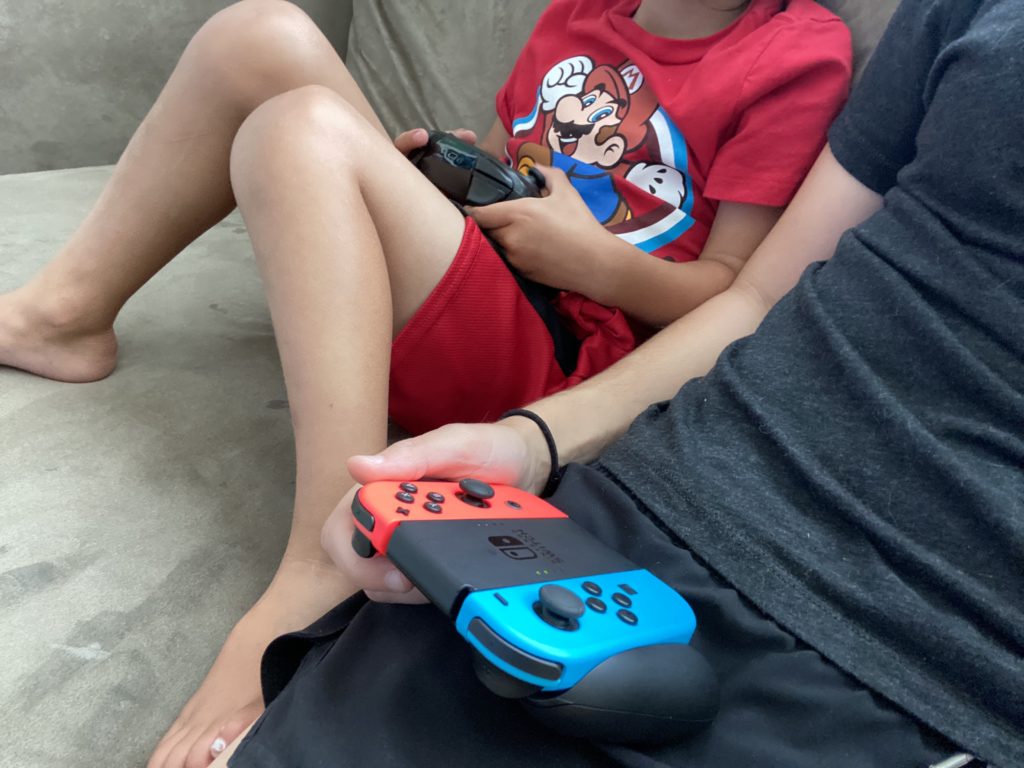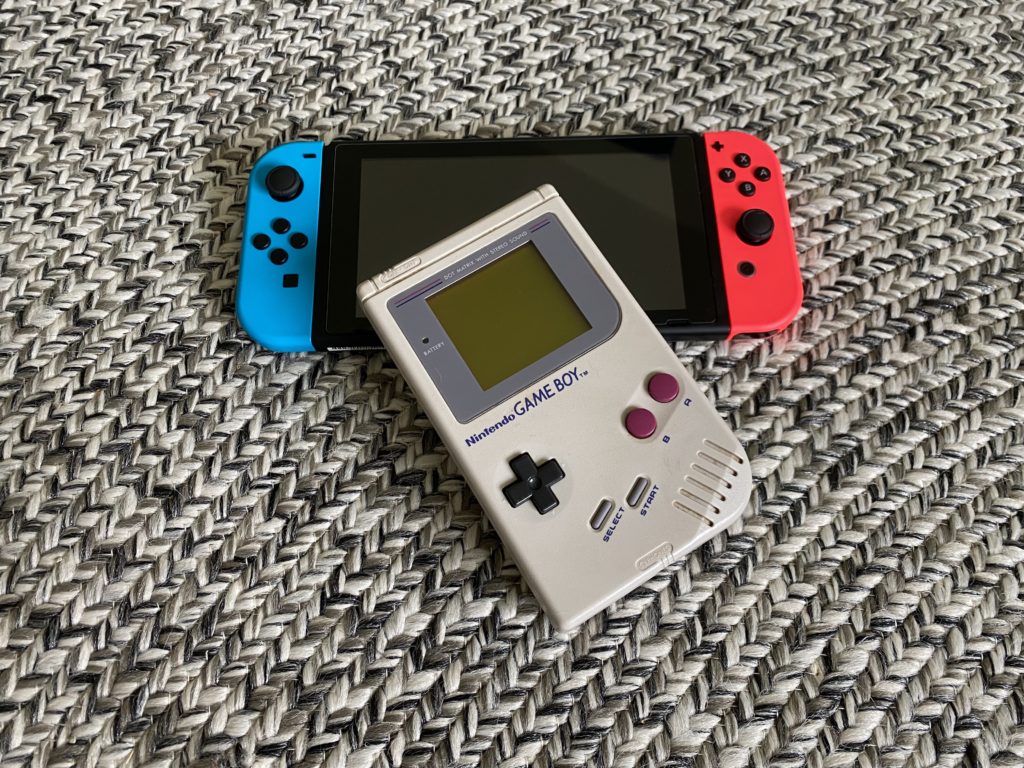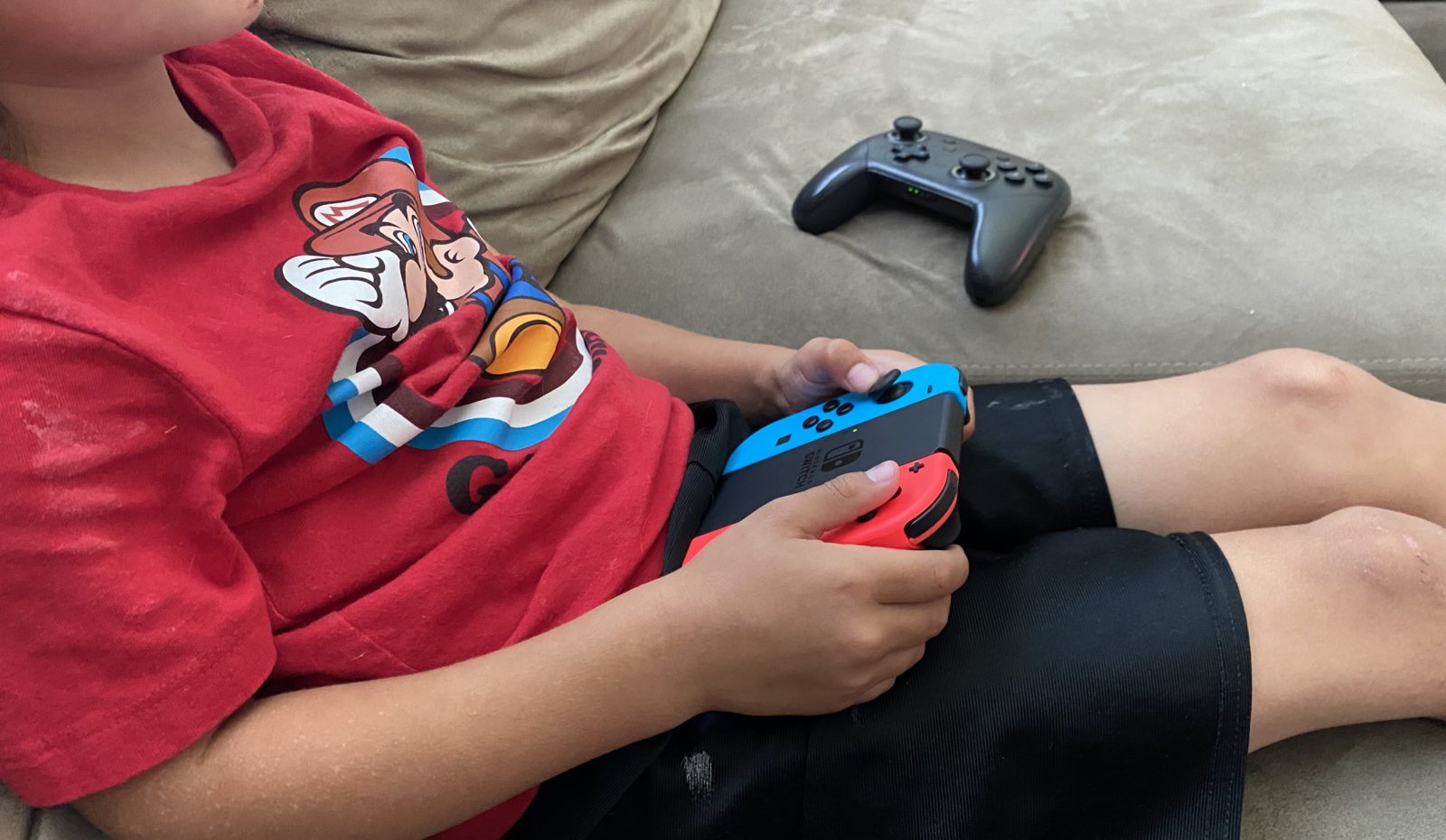I’ll admit I never thought I’d look into the living room and see my four-year-old on the couch with his own, portable video game device. Both of my children have been born into the “screens are trouble” generation, and I’ve taken that to heart. I tried – partly unsuccessfully – to limit screen time, whether that’s television, phones, tablets, you name it. But the reality is we live in a screen-driven world.
So when my kid became enamored with watching “Mario Odyssey” on YouTube, I realized I needed (and sort of wanted!) to change my tune – specifically around video gaming. I have incredibly fond memories of playing video games as a kid, and I don’t want to deny my child of that joy because of my societally-imposed fears. About three months ago we bought a Nintendo Switch and have offered our son opportunities to play every day since. Much to my surprise, I’ve witnessed far more positive outcomes from having this console in our home than I ever imagined.
Failing And Perseverance
There is nothing like a big GAME OVER scroll across the screen to incite some feelings of defeat, but what an opportunity for learning. After this relatively devastating message pops up, I’ve seen my son’s head drop for a few seconds and then slowly rise in preparation to give the game another go. Does he have success the next attempt? Sometimes but not always. He is learning to fail. But more importantly, he is learning – in the most low stakes of situations – to decide if he wants to give it another go again or take a break. He has learned that he can fail and always come back.
Problem Solving
When I think of top five skills I want my kids to have, the ability to problem solve is high on that list. It feels safe to say that most of us want to equip our kids with not only the creative skills to solve problems but the self-efficacy to figure things out on their own. While life presents all sorts of opportunities to solve problems, I’ve not found anything quite as motivating as a video game, and this falls hand in hand with that perseverance. “What if we try it this way?” “Do you think we could jump off this wall and then land on the button?” “I wonder if turning upside down would help.” It’s these phrases on repeat – sometimes initiated by my son and sometimes modeled by us – that I know are helping my child learn creative problem-solving skills in a very fun way.

Quality Time With A Parent
If my son had it his way, he would play “two player” games with one of his moms every single time. And I get why: he gets our undivided attention. It’s nearly impossible to play a video game with your very passionate child while scrolling your phone or loading the dishwasher. The truth is, I’ve learned to like this time too now. I set my phone down, we pick up a couple controllers, we laugh and joke on the couch while trying to get Mario and Luigi to successfully jump over a palm tree or bricks of fire or something. It’s special and it’s not something we had before.
Competition And Teamwork
When we first started playing two-player games with our son, there was a significant learning curve to distinguish between competition and working together. Opportunities to learn how to lose with grace and how to win with compassion are built into each and every Mario Kart Race. And opportunities to learn how to work together and use resources equitably are built into every Mario Odyssey Adventure. My child doesn’t perfectly display these skills every time, but what a joy to witness him slowly learning them with each gaming experience.

Taking Care Of Our Things
While I would love to say that I’ve done an amazing job of teaching my kids to take care of their things, the reality is that they have violently thrown many a toy across the room without much consequence. So why would I think an expensive, breakable gaming console is a good idea? I am not sure, but surprisingly it has not been a problem yet. From the time of purchase, we’ve been able to have really excellent conversations about how to care for controllers, small game chips, and charging cables. My son has risen to the occasion, and I cannot help but hope and trust this caring experience will carry over into the future.
Imagination And Creativity
My four-year-old is not inherently imaginative – at all. He likes numbers, concrete ideas, and specific plans. Imagine (pun very much intended) my surprise when his brain started showing signs of make believe. He would suggest that I jump and spin like Yoshi while he throws some imaginary ring at the “Goomba.” He even pretended to be a chef the other day – completely unrelated to any of our video game storylines. I truly believed I just had a kid who didn’t (couldn’t) play pretend, but now I confidently attribute this discovery of an imagination to his video gaming experience.
As we head into the hot summer months with kids out of school and lots of time on our hands, screen time is likely going to increase. From one white-knuckling-screen-limiting mom to another, I don’t think this screen time increase has to be a bad thing. In fact, with a little reframe, it might actually do some good.
Are you interested in exploring more about managing video gaming of all kinds for kids of all ages? I highly recommend checking out Ash Brandin on Instagram for some incredible tips, evidence, and personal insight.
In the meantime, happy gaming!



Leave a Reply